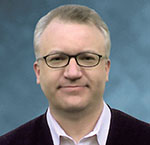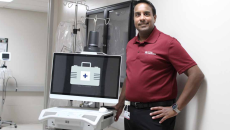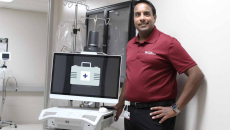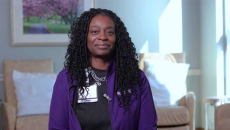Bill Siwicki
The app – with features galore and other apps intertwined – has seen a fivefold increase in daily use, with data showing that it meets the goal of being a central part of how patients and families interact with the health system.
Taking a patient history upfront via telemedicine has been very fruitful for the high-demand specialty provider. By combining history via virtual care with a then more limited in-person visit, care can be delivered more efficiently – and more patients can be seen.
Yesha Patel, from Keck Medicine of USC, offers a sneak peek at her HIMSS AI in Healthcare Forum presentation, which shows how the health system has pulled off major implementations of AI technologies both acquired and homegrown.
Dr. Ronald Rodriguez of The University of Texas Health Science Center at San Antonio shows how medical education today can benefit from additional work in AI and discusses how his groundbreaking dual degree program may influence the industry.
Cybersecurity In Focus
Third-party security vendor risk mitigation is another imperative as health systems rely on more and more technologies, says Barry Mathis of healthcare management consulting firm PYA.
The annual wellness visit and breast cancer screening campaigns show how a health system can succeed with value-based care. The provider also achieved a more than 28% improvement in care-gap closures.
Success Stories & ROI
The 51-hospital health system improved patient throughput in the ED for behavioral health patients, reduced door-to-needle times for stroke patients, and enabled rural hospitals to retain more patients through increased specialist access.
The 51-hospital health system improved patient throughput in the ED for behavioral health patients, reduced door-to-needle times for stroke patients and enabled rural hospitals to retain more patients through increased specialist access.
Nursing and IT
Panissa Caldwell, RN, the health system’s director of clinical services, explains how telehealth, artificial intelligence and other tools can help nurses make the most of their educations and careers.
The health systems' MyCare Anywhere app fuses the Epic EHR, MyChart, telemedicine, expert health content, self-guided health journeys and more. MetroHealth has done 27,000 virtual visits with thousands of referrals in the first year.










